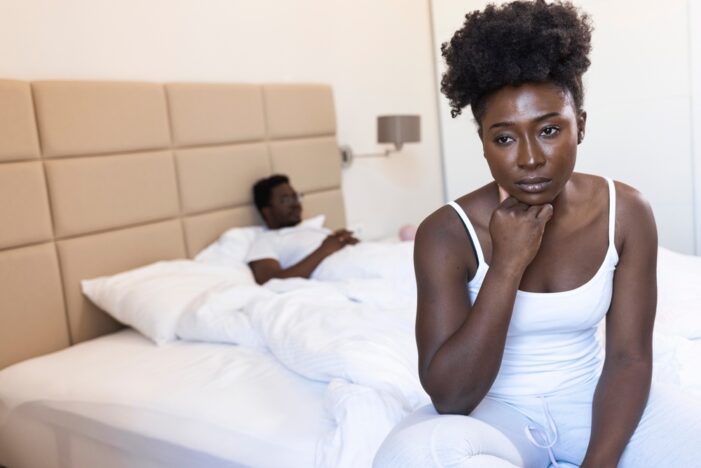By Mary Campbell
In 2021, the United Nations published the report “Measuring the Shadow Pandemic: Violence Against Women During COVID-19.” It said that since the pandemic, violence against women has increased to unprecedented levels. The American Journal of Emergency Medicine said that domestic violence cases increased by 25 to 33 percent globally. The National Commission on COVID-19 and criminal justice shows an increase in the U.S. by over 8 percent. Domestic violence is widespread everywhere.
3 Signs You Are in an Emotionally Abusive Relationship
Sometimes relationships end up being a source of pain. You may feel you’re not getting the security and comfort of having a partner. Instead, your life may start to feel like it’s a series of traumas. In such situations, you may often end up doubting yourself. You may feel confused about why your partner treats you so bad. At the same time, you may still hold on to the positive aspects, making it hard for you to make a decision. If you’re not sure if your relationship is abusive, here are three signs to look out for. These are by no means the only symptoms. But they signal a high-level of danger to your physical and emotional health.
You’re Not Allowed to Have an Opposing Opinion
People will always disagree on certain things. Conflict is not a bad thing if it’s an avenue to learn, grow, and exchange ideas. However, certain people can only accept their own points of view.
If you keep getting dismissed or demeaned in arguments, you’re being abused. It doesn’t matter if your views are accurate or not. Nobody has the right to make you feel inferior.
Sadly, certain people don’t know how to deal with opposing opinions. This may cause them to lash out. They may also use your disagreements as a chance to take out their frustrations.
You Can’t Raise Issues About How You Feel
Similar to the point above, you may end up being attacked when you raise an issue. This may be a demand for something you want, such as more attention or affection. Or perhaps your partner has a double standard. For example, they may think it’s OK for them to make you look bad in public. Yet, if you complain about it they’ll accuse you of disgracing them.
Such situations may make you feel worthless. You may feel confused about whether your perception is based on reality. This may weaken your confidence and damage your self-image.
You Find Yourself Hurting Your Partner
In certain cases, you may end up storing up feelings of anger and humiliation. When you can’t take anymore, you may end up lashing out at your partner. This may increase conflict and you may end up getting hurt even more.
The key here is to not allow your partner’s behavior to turn you into something you’re not. Don’t let their abuse be an excuse for acting against your own beliefs. Instead, assess your situation. Decide if you want to continue being in a situation that causes you to lose self-control.
Dealing with emotional abuse is hard. At the same time, staying a victim will only make your life worse. If you feel abused, take action to change the situation. Most importantly, connect with yourself and learn to understand your own actions. Do things that make you feel loved and respected. That will make it harder for you to stay in situations that threaten your well-being. Be prepared for an uphill battle. But remember, you’re fighting for your life.
Immigrants and Domestic Violence
Immigrants in the US. have the right to live life free of abuse. Due to the victim’s immigration status, abusive partners have additional ways to exert power and control over their victims. If you are an immigrant or refugee in an abusive relationship, you may face unique issues that make it hard to reach out for help.
VAWA
As a victim of domestic violence, there are laws that can allow you to gain legal status in the United States. The Violence Against Women Act (VAWA) was created in 1994 by then Senator Joe Biden, to protect victims of domestic violence, and offers specific protections for people without legal status in the US. VAWA also protects men and children who are victims of domestic violence. As part of the perpetration of domestic violence, abusers often may refuse to assist you with applying for immigration status, may promise to apply for you, but never actually help, or threaten to contact immigration and report you. VAWA helps victims of domestic violence allowing them to self-petition for their own legal status without the abuser’s help or knowledge.
A specialized immigration attorney should always be your first point of contact when it comes to immigration questions and concerns. You can also listen to Ask the Lawyer Radio Program on WVIP 93.5FM on Thursdays, 10pm-11pm and Sundays, 11pm to 12am. The program provides great information and also an opportunity for a confidential, no obligation legal consultation. The number to call is 855-768-8845. You can also visit www.askthelawyer.us Domestic violence is against the law regardless of one’s immigration status. Be a loving family member, good friend, and caring neighbor: please share this information.

